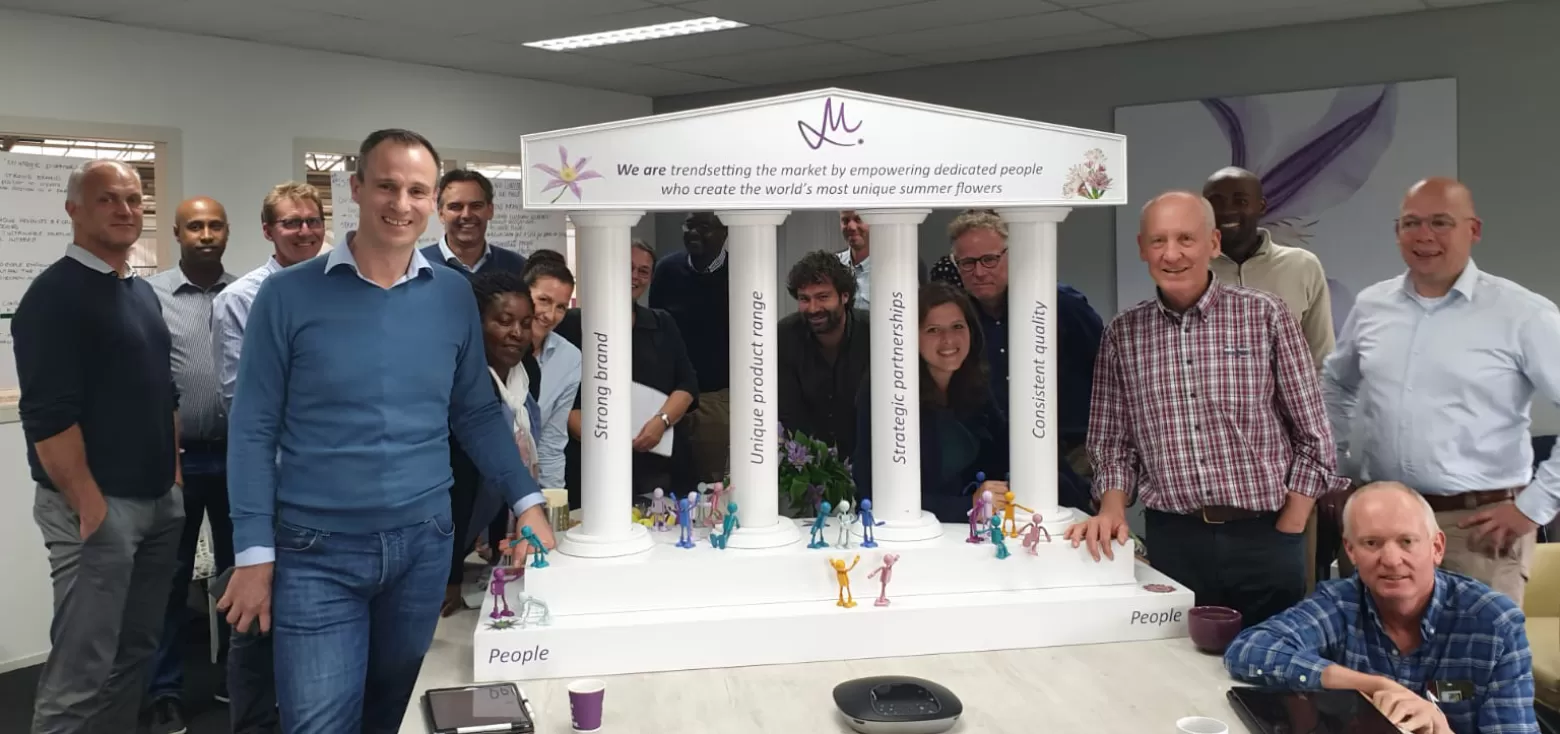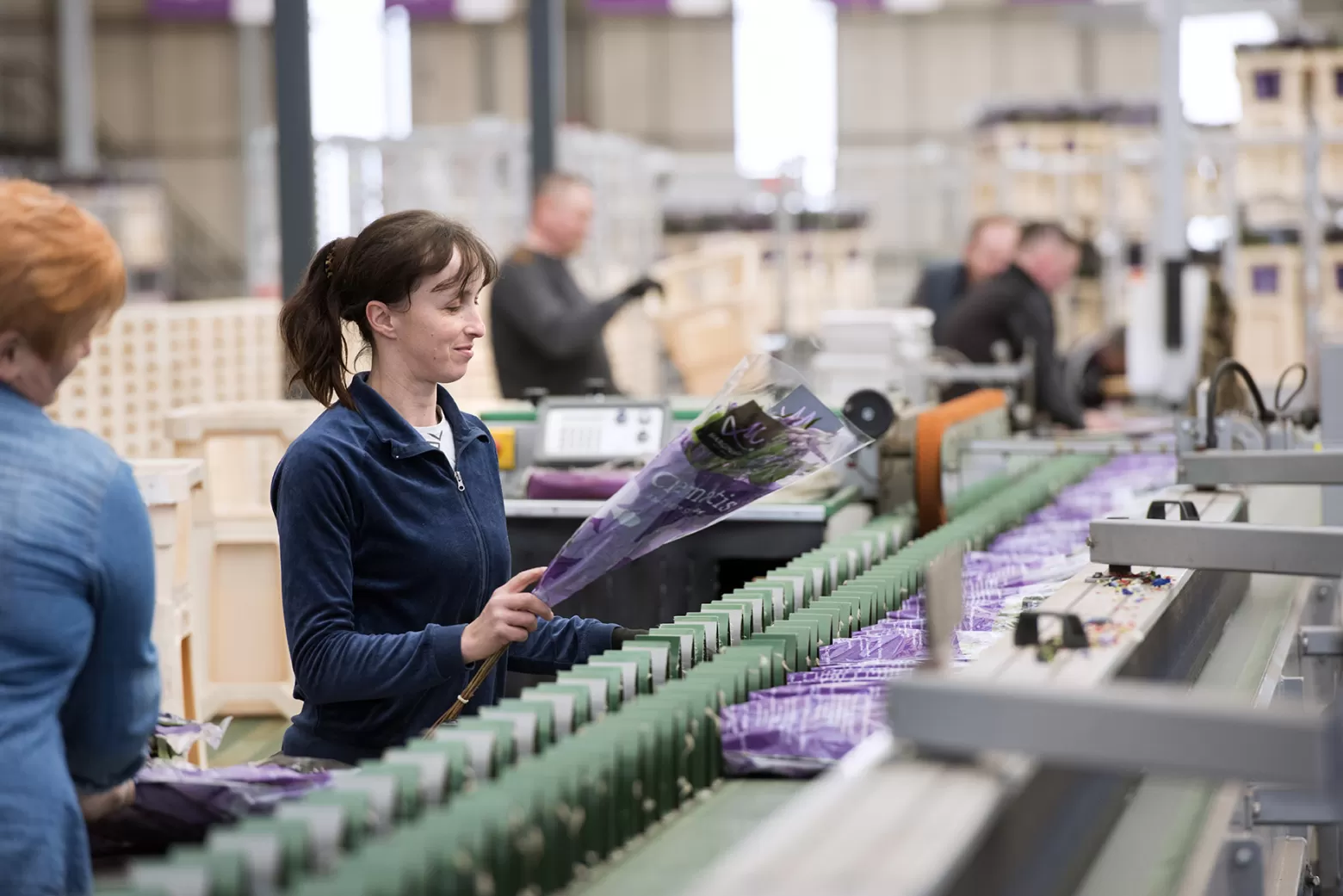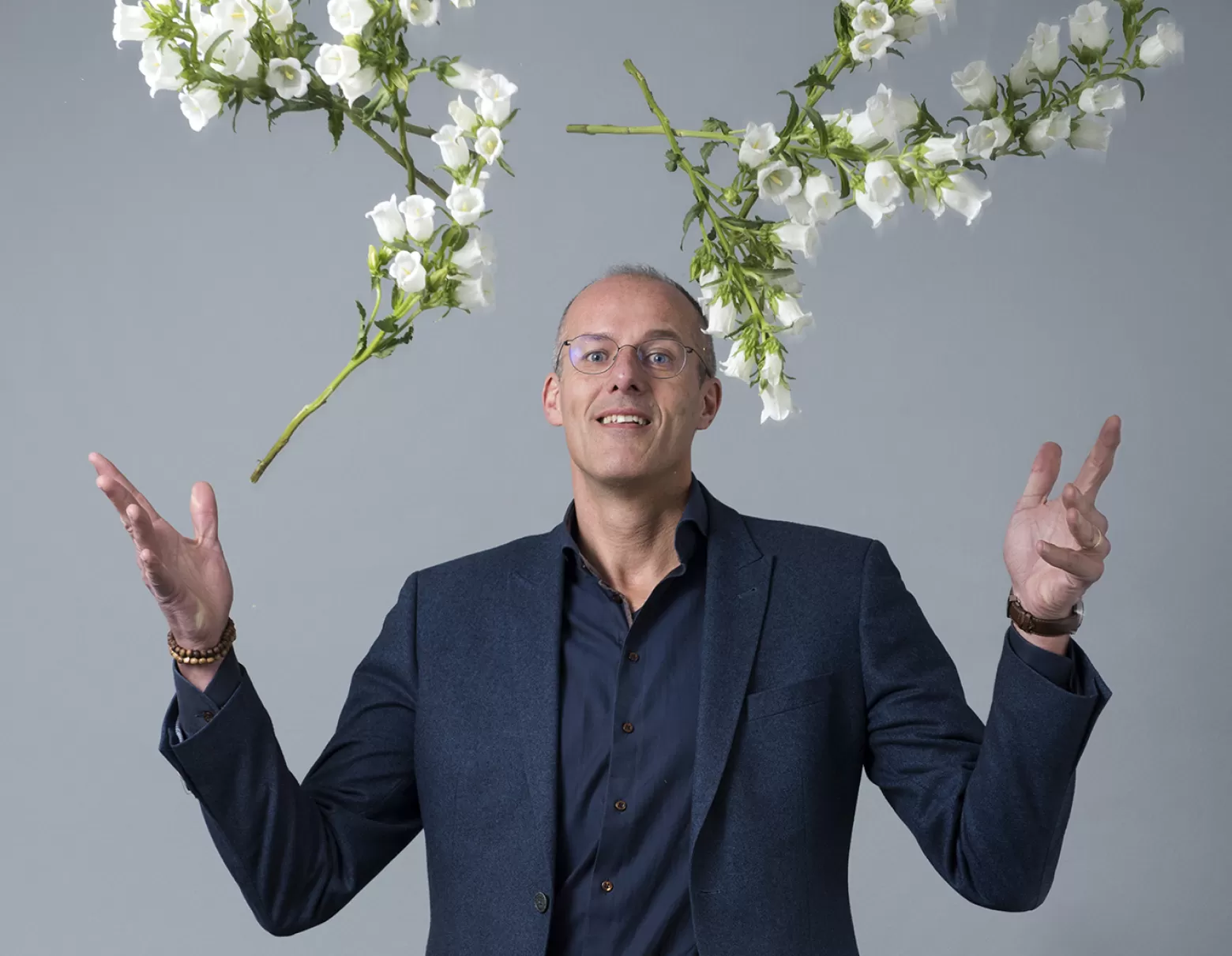
Looking back at looking forward
New headquarters, shaping the organization and oh yes also a whole new IT system, all at once.
For the last 2.5 years, the 52-year-old Michel Zaat has been General Manager at Marginpar. The vision of Marginpar was the biggest trigger for Michel to join the company. Michel: "Marginpar has a very clear and appealing vision, which Rob (Koning, MD) and Kiki (Richard Fernandes, CEO) developed together."
”We are trendsetting the market by empowering dedicated people who create the world's most unique summer flowers.
Room for development
The strategy behind how we realize our vision is divided into several pillars: building a strong brand, with a unique assortment, through consistent quality, while collaborating with strategic partners, and above all through people empowerment. Michel: "The Marginpar Group has been a merger organisation since 2018, where that vision and strategy must be put into practice. How do you ensure that I+I+I becomes 'we'. To make finance, production and market but also IT become one. Not just in the Netherlands, but across the entire group. If you know the direction, the vision, then you will see opportunities. How do you look at the market, how are you as an organisation, and how do you set up your organisation and processes? Those are the questions that I find extremely interesting."

Growth spurts
Marginpar is growing fast, with growth spurts you could say. As Michel puts it: "We have called a lot upon ourselves all at once. We are building a whole new IT package, the new construction of our headquarters on the N201 is obviously not an easy task, and at the same time we are shaping the organisation. Two years ago, we were very different, the team was much smaller. In addition to team developments, there are also more plans, there is more structure, and more pressure. That demands a lot from our people. At Marginpar, we give genuine room for development to our employees. I dare say that this is a unique company. That drive for development comes from the top, and it has to, for it to have a central place in the organisation."

The new premises
Anyone who visits Royal FloraHolland in Aalsmeer will have seen it: a new building is emerging along the N201. "Our new office is an important piece of the puzzle we are putting together. With this new location, we have a physical connection to the marketplace. Thanks to a new product street, we are connected to the logistics of Royal FloraHolland and all the sales partners we have in Europe. The new building says a lot about our identity: an organisation that is unique, distinctive and creative. There is plenty of room to meet. Extra attention has been paid to the processing area, our cold chain is flawless from front to back; from the farms, the flowers go on conditioned transport and they will arrive in our conditioned processing areas. This will further improve quality, because every hour that the temperature is higher than desired will affect the vase life of the flowers. Mechanisation helps us to work more efficiently, for example by constructing pits into which the aircraft pallets (containing boxes of flowers) are lowered so that we can work at a comfortable height. The logistics will become more efficient, and the chain hopefully shorter - at the front and the back. Now we are a difficult place for our transporter to deliver a pallet at night in the dark. The driver has to work with the forklift himself. Soon, this driver will arrive at a nice dock with a roller track and an automatic winch that pulls out the pallet, straight into the cold store."

A different perspective
When it comes to his plans, Michel does not think linearly forwards, but rather backwards. Michel: "You want to go from 'here' to 'there', but I find it particularly interesting to look back from 'there'. If I want to get there, if that is the shared vision of the organisation in two or three years' time, what steps must we take to get there? That is a completely different perspective. That makes it interesting! If you are going to build a building, you shouldn't recreate the current building, but you should be able to visualise and think: what will we need in a few years' time if we are going to be doing things that we are not doing now? How are you going to organise that then? With a building, it is very concrete, tangible. You do the same with an organisation. How are you going to set up processes, for example an IT system, in such a way that you support things that we are not yet doing but should be doing? What does that look like? That is what I am looking at in particular. With a team of people who know very well what they are doing. Who know where we want to go. From sales, logistics, or parts that we didn't even do two years ago, like product management, portfolio management, our market demand team.... We were already unconsciously competent then, there was a group of competent people working very hard on the flowers, but now we are going next level."

There is always a solution
The positivity that Michel brings is striking. In a job where a large part of the work revolves around large projects and implementing changes, with always something not going as you would like, you may need that. Fortunately, Michel has plenty of it: "During a project you will always encounter obstacles. But I trust that there will always be a solution. And there is. From the team, from an unexpected angle or from people you might not expect. Every problem you encounter can be bridged together. As long as you are clear about 'who are we', 'what are we doing it for', 'how are we active'. Marginpar is very distinctive in this."

The unique Marginpar concept
Michel likes to talk - and he does it with passion - about the 'Marginpar concept'. Michel: "Marginpar is a concept, and that makes us unique. Ultimately we are a grower. But how many growers have an enormously strong brand in the market? With an enormous reputation and name recognition? That is truly unique."
Michel explains that there is only talk of a concept if you deliver a lot of added value. Otherwise you are like any other company. How is that value added? "By paying a lot of attention to the unique assortment, we can come up with a very nice mix of products. That is how we add value for our (sales) partners. For our customers. We also offer a platform for breeders to develop further. And a lot of space for the farms to grow beautiful products. We have many partners who all add value to the concept. From the practical aspects of logistics to the people who work here. It's all part of the concept. The stronger you make the concept, especially the way we do that, the way we really bring people in and develop them, that's what I think is unique about Marginpar. It's very cool when that succeeds."
Follow #TheMarginparRecipe for more interesting looks into Marginpar's kitchen!



